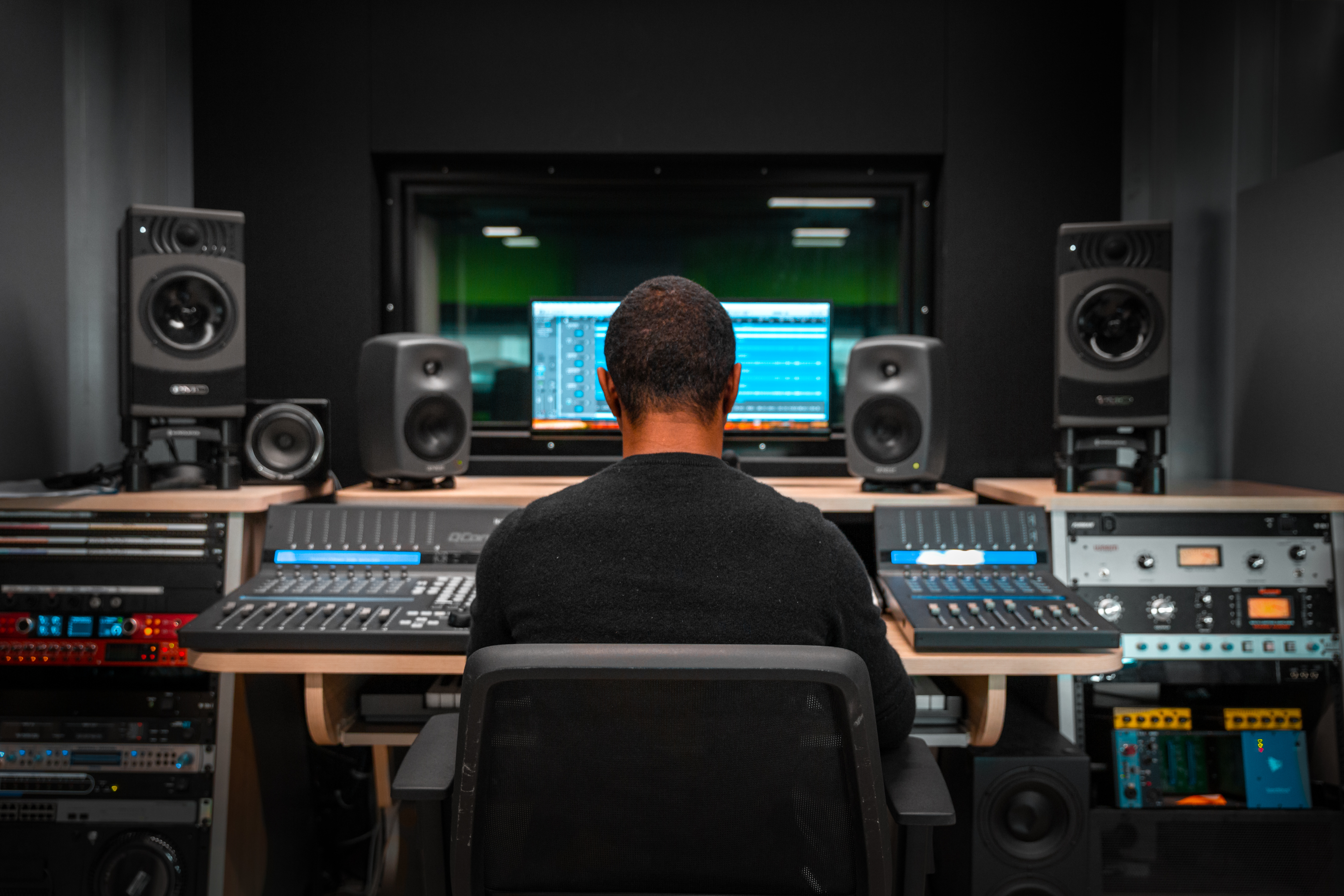
It has been a busy time for Olly Betts, a programme leader at the London College of Creative Media (LCCM): a new house, a new baby, and now he's setting up a new degree course to launch in September.
Betts is currently the programme leader for Creative Music Technology at LCCM; he's planning on extending the college's scope to a further 30 or so students on the new BA in Commercial Music Technology course, alongside a further 10 on the MMus Music Production course. The college is currently offering 100 per cent scholarships on any master's programme when you join an undergraduate programme this year.
‘We're recruiting well,’ says Betts. ‘The new course appeals to an eclectic mix of people: some mature students, some instrumental teachers who are interested in CPD, some who specialise in digital recording along with the more traditional younger applicants.’
Predictably, there is a strong intake of ‘young lads’, as Betts puts it, acknowledging that the whole music production industry, like many areas, is ‘completely out of balance’, but he is encouraged by having three female applicants for the course this year.
‘This lack of balance is an issue for the entire industry,’ he says, ‘and it's one we are keen to address here, alongside the PRS ReBalance campaign which is supporting women who want to work in sound engineering, stage management and production by offering apprenticeships… but there's still a lot to be done.’
It is a wide-ranging course which will give students a taster of many aspects of the industry before they decide where they want to specialise. ‘Some people come to us with an interest in front of house, mixing, lighting design, digital audio, some come with BTECs, GCSE or A Level, and some have no qualifications but years of experience.
‘I will consider anyone. I actually often point some people in another direction because it's better for them, but it's the variety of skills and talents that makes this place what it is: a friendly community where you can find inspiration.’
Portfolio career
With post-Covid surges in degrees which will lead directly to employment, is the dream of making a living in the arts an unrealistic sell?
‘Not at all,’ he says. ‘No one is saying this is easy, but I personally have never been busier than in lockdown. There is such an appetite for music out there. So much is doable online to an incredibly high standard. Tech affords immense possibilities and that is what we are teaching on our courses. A portfolio career is the only way forward in this profession but once you understand that, realise where your talents lie, and get used to multi-tasking, it can work fantastically.’


He emphasises the importance of social media to his students too: ‘As tech-culture continues to drive both the marketing and creation of music, the importance of social media status becomes increasingly challenging for new artists,’ he says. ‘The challenge is not simply the art of making great music but building an online following and our students must now be content creators alongside being music makers. While the time commitment can detract from music making, their interaction is symbiotic and must become part of the creative process.’
Industry-ready graduates
Another popular degree is the Composition for Film, Games and other Media course, run by Pat Cotton. This pathway, as well as exposing students to those social media knowhows, aims ‘to produce versatile, musically literate graduates with the skills, theoretical knowledge and networks needed to develop lasting careers as professional composers for film, TV, games and other media,’ says the programme leader.
With fees of £9,250 full time (three years) and £4,620 part time (six years), the broad range of lessons aims to maximise both employability and opportunity.
‘Each level builds on the knowledge gained from the previous one so you will develop high-level skills in composing music for all forms of visual media, and you end up with a focused set of composition, arranging and technology skills’.
It is the acquisition of these skills that convinces both Betts and Cotton that students can make a go of it, financially, after graduating. ‘Nobody should walk out and think “I'm going to make £50,000 in my first year”, but music is a calling and if you can make a living working in an area you love, that is absolutely great,’ says Betts.
‘The demand for music at the moment is massive. Just look at Netflix, for example, and the amount of music being produced. There will be more virtual festivals, and everything is getting more accessible in a global marketplace.’
Meanwhile, a further LCCM course which might appeal to students considering the Creative Music Tech and Composition degrees is the BMus in Contemporary Performance and Production. It describes itself as ‘the perfect choice if you want to know how to create, produce and perform your own music and establish a creative career in the music industry.’
Cotton also leads this course. He describes his eclectic career as ranging from ‘singing in a punk band on radio, to performing at Glastonbury, to playing bass in a jazz quartet to organising major festivals and supporting big name acts’.
Students get immense benefits from this experience across a wide range of genres and from working with lecturers who have lived the life, rather than simply studied it academically.
‘This course also attracts a wide range of applicants,’ he says. ‘In normal times, we would have around 70 a year on the course and this year's figures are holding up pretty well and we're hoping for even more.’
‘The skills students arrive with are diverse. Most will have covered all the theory already and in the audition, they come across as people with a lot of creativity. But the one thing they all have in common is a strong work ethic and a willingness to go back to basics to ensure that all the bases are covered.’
Teaching, as everywhere else, has been entirely online of late, but there are now plans to restart face to face sessions for the summer term, with modules planned on production skills, live recording, and programming.
Nurturing individuality
One former LCCM student who sticks in Cotton's mind is Tom Walker, who won the British Breakthrough Act in the Brit Awards 2019 before even releasing his first album.
‘You could just see that he had so many of the vital skills we like to identify in students,’ says Cotton. ‘He was a very good songwriter, he had originality, he was driven, and he was goal-orientated. He really had his own style.’
Walker may well act as a shining beacon to this year's applicants, but Cotton is adamant that the new intake should remain true to their own style. ‘As an educator’, he says, ‘to me, technique for technique's sake does not impress. Music education should never take away from your own identity, but it should be practical and add to what you already have with your own style.’
‘Seeing everything that's on offer here, the performance opportunities, the technical stuff and the business knowhow, I just wish it had been around when I started.’
About the London College of Creative Media
- LCCM describes itself as ‘a one-of-a-kind creative institution based in Waterloo, in the heart of London, offering a range of undergraduate and postgraduate degrees in music, and creative entrepreneurship.’
- Students can combine their principal subject with their own choice of related study modules.
- Degrees are validated by the University for the Creative Arts.




